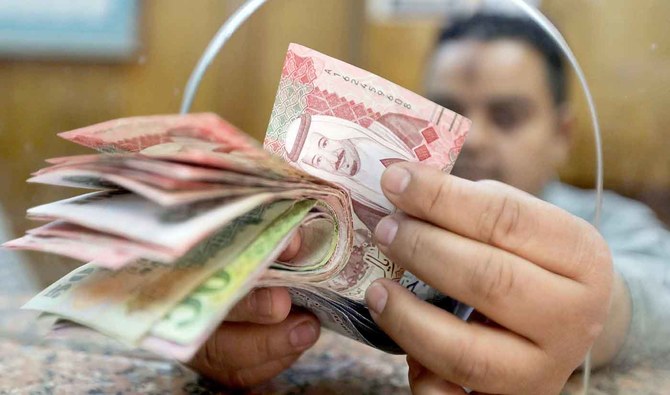KARACHI: Saudi Arabia and the United Arab Emirates (UAE) remained the top contributors to Pakistani remittances during the first two months of the current fiscal year, though there was a minor decrease in the overall inflow of money during the same period, according to the official data.
On a cumulative basis, workers’ remittances stood at $3.73 billion during July-August FY20 compared with $4.07 billion recorded in the same period last year, showing a decline of 8 percent.
During July 2019, the inflow of workers’ remittances amounted to $2.04 billion, 23.91 percent more than June 2019 and 2.9 percent more than July 2018. The inflows during August 2019 declined by $348.4 million to $1.69 billion from $2.034 billion, according to the State Bank of Pakistan (SBP).
The country’s central bank termed the drop a “seasonal factor” due to Eid Al-Adha that fell on August 12, 2019. “Usually before the Eid, the inflows remain higher than average as workers send more remittances to their families [for Eid-related expenses]. This year the inflows starting pouring in in July 2019,” SBP’s chief spokesman, Abid Qamar, told Arab News.
“Last year, the Eid was celebrated on August 22 and the inflows were received within the month of the August 2018 and the drop was witnessed in September 2018,” he added. “This is a seasonal factor that can be witnessed during Ramadan and around the Muslim festivity of Eid Al-Adha every year.”
During the first two months of the current fiscal year, Pakistan received $848 million from Saudi Arabia as compared to $903 million during the same period last year. The country had received $5 billion only from Saudi Arabia out of a total inflow of $21.8 billion in 2018.
Since the opening of Pakistani workers’ entry in the gulf job market, the Kingdom of Saudi Arabia has remained the top destination for Pakistani workers where 5.3 million of them have found jobs since 1971.
The official data of the Bureau of Emigration & Overseas Employment (BEOE) show that the number of Pakistani workers to Saudi Arabia increased from 100,910 during 2018 to 184,424 by August 2019.
“A major reason behind this increase is escalation in oil prices in 2019 which positively affected the gulf economies that opened up employment opportunities for expatriate workers and resultantly an increasing trend in export of manpower was witnessed during the first half of 2019, mainly in KSA and UAE,” the BEOE report says.
Inflows from the UAE, the second largest contributor to Pakistani remittances, also declined from $919 million to $775 million during the first two months of FY20, showing a decline of 15.6 percent.
Analysts say this decline in the remittances can be attributed to the falling number of workers in the Emirates which, according to the BEOE, dropped from 208,635 in 2018 to 139,152 till August 2019.
“Around 35,000 Pakistani workers have returned from the Middle East. Besides, the activities of Pakistani workers were reduced due to various issues and this had a major impact on the inflow of remittances,” Dr. Bilal Ahmed, a senior economist, told Arab News.
To arrest the decline in inflows, analysts suggest the government of Pakistan should jack up diplomatic efforts with Saudi Arabia and the UAE and convince them to accommodate more human capital from Pakistan.
“Pakistan must negotiate with Saudi Arabia and the UAE to find a way out for those whose visas have expired so that they could continue their jobs there,” he added.
Saudi Arabia remains top contributor to Pakistan’s remittances despite seasonal shock
Saudi Arabia remains top contributor to Pakistan’s remittances despite seasonal shock

- There was an overall decline in workers’ remittances, according to official data
- The number of overseas workers has increased by 46 percent during the first half of 2019, says BEOE










